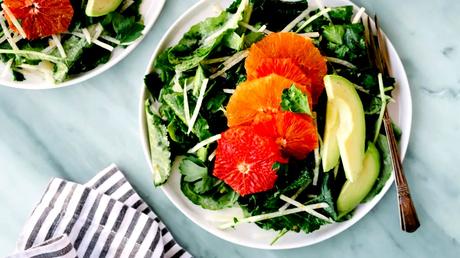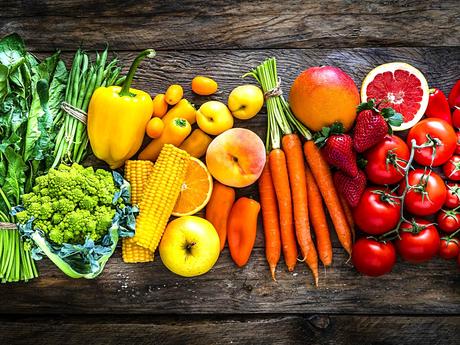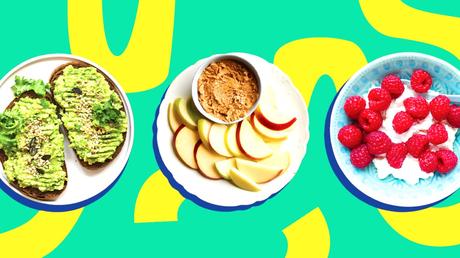Let us Develop Zero-Calorie Eating Habits. Transform your lifestyle with nutrient-dense foods & mindful eating. Embrace healthier choices now!
Are you looking to revolutionize your approach to nutrition and embrace a healthier lifestyle? It’s time to develop zero-calorie eating habits! You can manage your weight and boost your overall health by incorporating nutrient-dense, low-calorie foods like cucumbers, celery, and watermelon.
Mindful eating practices will guide you in savoring each bite and recognizing your body’s hunger cues. Say goodbye to unhealthy snacking and welcome guilt-free indulgence in zero-calorie options. With these simple yet effective habits, you can achieve your wellness goals and feel more energized and satisfied with your daily food choices. Start your journey to a healthier you today!
How to Develop Zero-Calorie Eating Habits
Maintaining a healthy diet has become more challenging than ever in today’s fast-paced world, where unhealthy food options are readily available and highly tempting. Many struggle to resist the allure of high-calorie treats, leading to weight gain and various health issues. Developing zero-calorie eating habits can be a powerful strategy to combat these challenges and achieve a healthier lifestyle. This article will explore practical steps to incorporate zero-calorie eating habits into your daily routine. Let us Develop Zero-Calorie Eating Habits.
Read more: The Best Foods for Healthy Eyes
Understanding Zero-Calorie Foods

What are Zero-Calorie Foods?
Zero-calorie foods have shallow caloric content, often requiring more energy to digest than they provide. These foods are usually rich in water and dietary fibre, filling them and conducive to weight management. Examples include cucumbers, celery, watermelon, lettuce, and broccoli.
Zero-calorie foods can be nutritionally beneficial despite their minimal caloric impact, as they offer essential vitamins, minerals, and antioxidants. By including these foods in your diet, you can encourage a fullness sensation and aid in healthy eating habits, making them an excellent choice for those seeking to maintain a balanced and calorie-conscious lifestyle. Let us Develop Zero-Calorie Eating Habits.
Examples of Zero-Calorie Foods

Examples of zero-calorie foods are nutrient-rich options that provide minimal caloric content while offering numerous health benefits. These foods are typically low in calories and high in water and fibre, making them ideal for weight management and promoting a feeling of fullness. Let us Develop Zero-Calorie Eating Habits. Some common examples include:
- Cucumbers
- Celery
- Watermelon
- Lettuce
- Broccoli
1. Cucumbers
The potassium and vitamin K in these moisturizing and reviving vegetables are very high, among other vitamins and minerals.
2. Celery
With its crunchy texture and high water content, celery is a popular choice for snacking and is low in calories.
3. Watermelon
This luscious fruit is an excellent source of vitamins A and C and is tasty.
4. Lettuce
A staple in salads, lettuce is low in calories and provides essential nutrients like folate and vitamin K. Let us Develop Zero-Calorie Eating Habits.
5. Broccoli
A nutrient powerhouse, in addition to fiber and antioxidants, broccoli is a good source of vitamins C and K.
Incorporating these zero-calorie foods into your diet can support overall health and help you achieve your nutritional goals without worrying about excessive calorie intake.
Read more: How to Grow Hair Fast: 20 Best Foods
Meal Planning for Zero-Calorie Eating

Meal planning for zero-calorie eating involves creating balanced and nutritious meals incorporating various zero-calorie foods while ensuring you meet your body’s nutritional needs. Let us Develop Zero-Calorie Eating Habits. Here are some essential aspects of meal planning for zero-calorie eating:
1. Balanced Meals
Despite focusing on zero-calorie foods, including other nutrient-dense options like lean proteins, whole grains, and healthy fats is crucial. This ensures you get all the necessary vitamins, minerals, and macronutrients for overall well-being.
2. Portion Control
Even with low-calorie foods, portion control matters. Pay attention to serving sizes to prevent overeating and maintain a healthy caloric balance.
3. Mindful Eating
Enjoy mindful eating practices, savoring each bite and being present during meals. This helps you recognize hunger and fullness cues, preventing mindless eating. Let us Develop Zero-Calorie Eating Habits.
4. Diverse Flavors and Textures
Combine zero-calorie foods with various flavours and textures to enhance your meals’ taste and satisfaction. Experiment with different herbs, spices, and sauces to keep your meals exciting.
5. Hydration
Incorporate zero-calorie beverages like water, herbal teas, or infused water to stay hydrated and avoid unnecessary calorie consumption from sugary drinks.
You may create a long-lasting and healthy method of food preparation by implementing these techniques, ensuring you enjoy delicious and nutritious meals while managing your calorie intake effectively.
Healthy Snacking with Zero-Calorie Foods

Healthy snacking with zero-calorie foods offers an innovative and satisfying way to curb hunger and maintain a nutritious diet. Here’s how to make the most of zero-calorie snacks:
1. Opt for Nutrient-Rich Options
Choose zero-calorie foods like cucumber, carrot sticks, or apple slices. These snacks are packed with vitamins, minerals, and antioxidants, supporting overall health.
2. Stay Filled and Hydrated
Zero-calorie snacks are often high in water content, keeping you hydrated and promoting a feeling of fullness, reducing the temptation to reach for unhealthy treats.
3. Pair with Protein
Combine zero-calorie foods with a protein source, like Greek yoghurt or almonds. Let us Develop Zero-Calorie Eating Habits. This combination enhances satiety and provides essential amino acids.
4. Preparation Matters
Have pre-cut and ready-to-eat zero-calorie snacks available for convenient and healthy snacking.
5. Explore Flavorful Dips
Spice snacks with nutritious dips like hummus, Greek yoghurt-based dressings, or nut butter. These add taste without adding too many calories.
By incorporating zero-calorie snacks into your diet, you can manage your weight, boost nutrient intake, and maintain energy levels throughout the day while indulging in delicious and guilt-free treats.
Read more: Foods to Boost Vitamin D Levels Naturally
Staying Hydrated with Zero-Calorie Beverages
Importance of Hydration
Proper hydration is essential for overall well-being. Replace sugary beverages with zero-calorie options like water, herbal teas, or infused water to stay refreshed and avoid unnecessary calorie intake.
1. Water, the Ultimate Hydrator
Water is the best zero-calorie beverage for hydration. Carry a reusable water bottle to sip throughout the day and ensure you meet your daily hydration needs. Experiment with infused water by adding slices of fruits, such as lemon, cucumber, or berries, for a burst of natural flavor.
2. Herbal Teas
Herbal teas, like chamomile or peppermint, provide a flavorful alternative to plain water. They are calorie-free and offer various health benefits, such as aiding digestion and promoting relaxation.
3. Infused Water
Enhance the taste of plain water by investing it in slices of fruits like lemon, cucumber, or berries. Infused water adds a refreshing flavor without any additional calories. Staying hydrated with zero-calorie beverages is essential for overall well-being and maintaining a healthy lifestyle. Here’s how you can make the most of zero-calorie drinks:
4. Iced Green Tea
Unsweetened iced Green tea is a fantastic option because it has antioxidants and a subtle caffeine boost, promoting alertness without the added sugars of other beverages.
5. Sparkling Water
Sparkling water is a bubbly and refreshing option for those who enjoy carbonated beverages without the added sugars or calories in sodas.
6. Water of Coconut
Coconut water is a natural electrolyte-rich drink that can help replenish lost fluids after physical activities.
7. Limit Sugary Beverages
Avoid sugary drinks like sodas, energy drinks, and fruit juices, as they can lead to unnecessary calorie consumption and may not provide lasting hydration.
By prioritizing zero-calorie beverages like water, herbal teas, and infused water, you can stay hydrated throughout the day, support your body’s functions, and maintain a healthier lifestyle.
Mindful Eating and Zero-Calorie Habits
Practising Mindful Eating
Mindful eating involves savouring each bite, eating slowly, and paying attention to the sensory experience of the food. This approach promotes a deeper connection with your body’s needs and prevents mindless overeating.
Mindful Eating Techniques
Try putting down your fork between bites, chewing slowly, and focusing on the food’s taste, texture, and aroma.
Mindful eating and zero-calorie habits go hand in hand, creating a powerful approach to nourishing your body while fostering a healthy relationship with food. Here’s how these practices work together:
1. Mindful Eating
Mindful eating involves being fully present and attentive during meals. Savour each bite and appreciate the food’s flavors, textures, and aromas. Pay attention to your body’s hunger and fullness cues, eating until you feel satisfied, not overly full.
2. Zero-Calorie Habits
Zero-calorie habits focus on incorporating low-calorie, nutrient-dense foods into your diet. You can enjoy more significant portions without worrying about excessive calorie intake by including cucumbers, celery, and watermelon.
3. Awareness of Food Choices
Mindful eating encourages awareness of your food choices, ensuring that zero-calorie meals and snacks contain various foods. This helps maintain a balanced diet while managing calorie intake effectively.
4. Reduced Emotional Eating
Mindful eating can reduce emotional eating, helping you distinguish between true hunger and emotional triggers. Choosing zero-calorie snacks mindfully can satisfy needs without resorting to high-calorie comfort foods.
5. Improved Portion Control
By being mindful of portion sizes and focusing on zero-calorie options, you can control your caloric intake more effectively, aiding in weight management and overall health.
6. Savoring the Experience
Mindful eating and zero-calorie habits encourage you to enjoy your meals and snacks fully. Combining flavorful, nutrient-rich foods creates a positive and satisfying eating experience.
By combining mindful eating practices with a focus on zero-calorie habits, you can develop a healthier and more enjoyable approach to eating. These practices promote a deeper connection with your body’s needs, enhance overall nutrition, and support your journey towards a balanced and sustainable diet.
Zero-Calorie Habits for Dining Out
Navigating Restaurant Menus
Eating out might be tricky when trying to keep up a zero-calorie diet. However, many restaurants offer healthier options like salads, vegetable-based dishes, and lean protein.
Making Smart Choices
Look for menu items incorporating zero-calorie foods and ask for dressings or sauces on the side to control calorie intake. Let us Develop Zero-Calorie Eating Habits.
Zero-calorie habits for dining out can help you make healthier choices when eating at restaurants while still enjoying a delicious meal. Let us Develop Zero-Calorie Eating Habits. Here’s how to incorporate zero-calorie habits into your dining experience:
1. Menu Previews
Before heading to the restaurant, check the menu online to identify dishes with zero-calorie foods like salads, vegetable-based options, or lean proteins.
2. Opt for Salads
Choose as an appetizer or main course. Ensure they include a variety of colourful vegetables and ask for dressings on the side to control calorie intake.
3. Vegetable-Based Dishes
Look for dishes centred around vegetables, such as stir-fries or vegetable-based curries, which offer a satisfying and low-calorie option.
4. Lean Proteins
Select dishes with lean proteins like grilled chicken, fish, or tofu. These options are filling and provide essential nutrients without excessive calories.
5. Request Modifications
Don’t hesitate to request dish modifications, like substituting fries with a side salad or asking for less oil or butter in the preparation. Let us Develop Zero-Calorie Eating Habits.
6. Avoid Sugary Beverages
Opt for zero-calorie beverages like water or unsweetened tea instead of sugary sodas or cocktails.
7. Share Desserts
If you want to indulge in dessert, consider sharing to reduce portion sizes and calorie intake with others.
8. Portion Control
Restaurants often serve large portions, so practice portion control by asking for a to-go box and saving half the meal for another time.
9. Avoid Fried Foods
Steer clear of fried and heavily processed dishes, as they can be high in calories and unhealthy fats. Let us Develop Zero-Calorie Eating Habits.
10. Mindful Eating
Be mindful of your eating habits, savour each bite, and listen to your body’s hunger and fullness cues.
Adopting these zero-calorie habits when dining out allows you to enjoy a satisfying meal without compromising your health goals. Let us Develop Zero-Calorie Eating Habits. Making informed choices and practicing mindful eating can lead to a more enjoyable and health-conscious dining experience.
Conclusion
In conclusion, developing zero-calorie eating habits is a powerful strategy for healthier lifestyles. You can manage your weight and boost overall nutrition by incorporating nutrient-dense, low-calorie foods like cucumbers, celery, and watermelon. Mindful eating practices help cultivate a positive relationship with food, promoting portion control and reducing emotional eating.
Choosing vegetable-based dishes, lean proteins, mindful menu previews, and portion control supports healthier choices when dining out. Staying hydrated with zero-calorie beverages like water and herbal teas enhances overall well-being. Embracing these habits can lead to a balanced and sustainable approach to nutrition, ultimately improving your overall health and well-being. Let us Develop Zero-Calorie Eating Habits.
FAQs
Are zero-calorie foods nutritionally beneficial?
Yes, zero-calorie foods are often rich in vitamins, minerals, and antioxidants, providing valuable nutrients to the body. Let us Develop Zero-Calorie Eating Habits.
Can I solely rely on zero-calorie foods for weight loss?
While zero-calorie foods can aid in weight management, a balanced diet with a range of nutrients is crucial for overall health.
Do zero-calorie foods taste bland?
Not necessarily. Zero-calorie foods can be delicious and satisfying by incorporating different flavours and seasonings.
Can I indulge in occasional high-calorie treats?
Yes, occasional treats are acceptable. Let us Develop Zero-Calorie Eating Habits.The key is moderation and maintaining a predominantly healthy eating pattern.
Will zero-calorie eating habits work for everyone?
Zero-calorie eating habits can benefit many individuals, but personalized dietary approaches may be necessary for some individuals based on their health needs.
